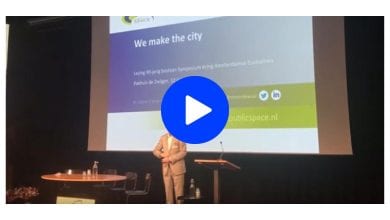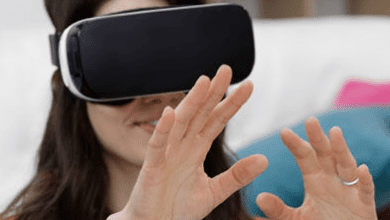Disruptive citizenship
Disruptive citizenship – introduction to the theme
Politics will also be disrupted by new civil power

Since 2015, I use the concept “disruptive citizenship”, thereby combining the “disruption” that we know new technologies caused in markets with the power that those same disruptive technologies also give to citizens.
Disruption has visibly tilted entire markets, such as the travel-, hotel-, music and taxi sectors. It has mercilessly undermined existing market players. Therefore, most analyses link this concept exclusively to market environments.
Not only markets will disrupt
In my opinion, the underlying technologies are the cause of this disruption. This also explains why both the political and public domains will change in a revolutionary way. Websites, apps, and platforms are appearing due to and built on the increasingly faster, larger and globally functioning internet. The applications of which are already incredibly plentiful and will grow exponentially.
This is why, in ‘Civil Leadership as the Future of Leadership’, I call this The Digital Civil Revolution. It is not simply a new phase in technological or industrial regard: all of society and humanity will ‘disrupt’.
Our mission
The new technological revolution greatly supports Public Space Foundation’s mission to stimulate active citizenship and social entrepreneurship:
- Citizens receive more information, more data and knowledge, more chances to find like-minded people and to organize, and can openly share and test their opinions on the new public channel. The new technologies provide citizens with more information, more data, more opportunities to organize themselves and, for the first time, create a truly public opinion of and by the public.
- One can already see that, around the globe, citizens themselves, and civil society as unifier of citizens, are gaining strength. Neighborhood initiatives and collaboration arise around care and security. Protest grows faster and therefore influences press and politics. Scandals and muck-raking are picked up, fully exposed and shared by citizens themselves.
- The media landscape is increasingly built on content contributed by the public including citizens’ own blogs, vlogs, photos, and videos. This tilts the complete media landscape and clearly increasingly influences (democratic) politics and the (free) press. Based on its mission, Public Space considers this a valuable development, no matter how much those currently in charge, also in supposedly democratic politics, find this troublesome and try to undermine it through negative criticism or even direct opposition.
‘Democratic politics functions in a market as well’
- The behavior of the incumbents completes the parallel with disruption in the market. There also, incumbents have long denied and negatively named the impact, or tried to hide behind rules and regulations. As the market mechanism reacts mercilessly to insufficient strategic insight, some of them are now bankrupt or acquired.
In my opinion, democratic politics functions in a market as well, one of citizens with a vote. Therefore, politics needs to learn this lesson in time, otherwise, democracy and institutions based on it will also disappear. As founder of Public Space, I wish to contribute to ensure that this lesson is taken to heart, without losing the citizens and citizenships’ gains.



